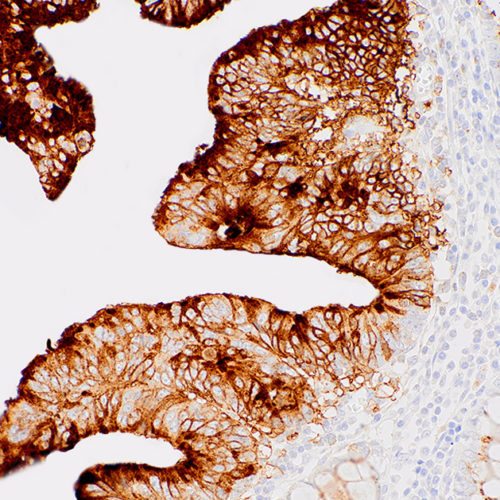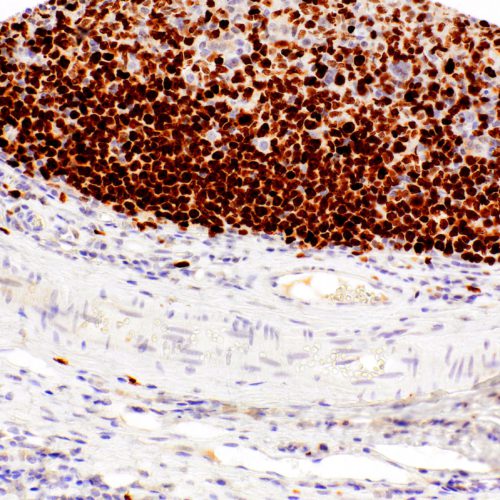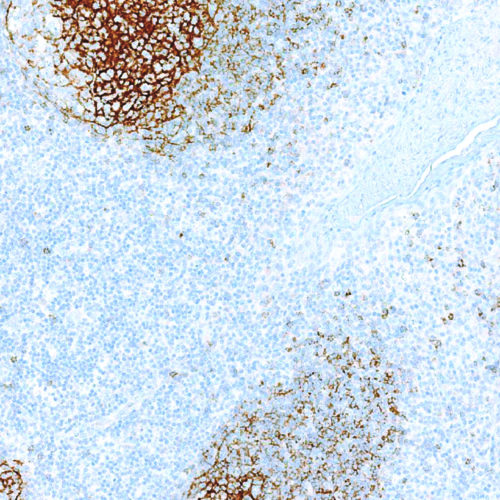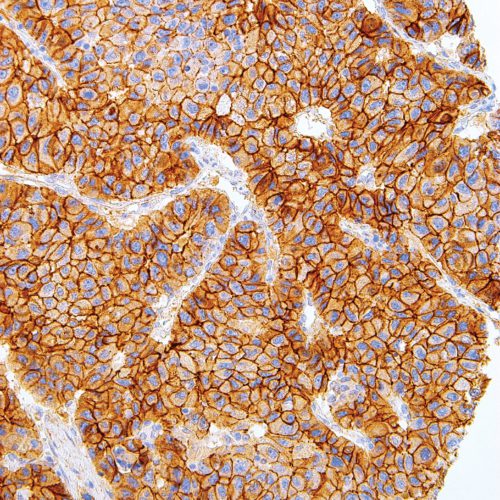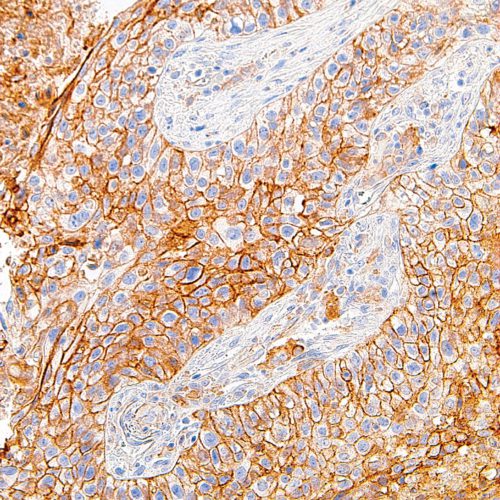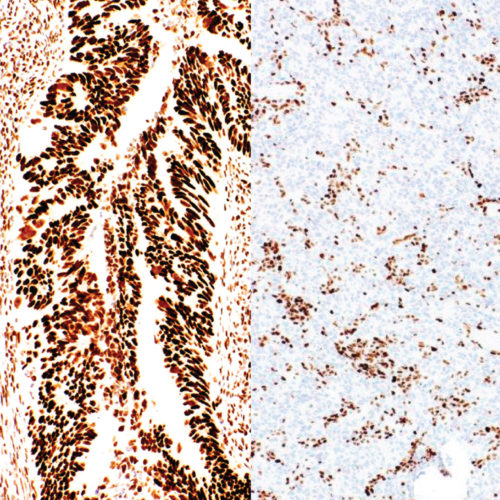High quality products to support Pathologists and Biological and Environmental Scientists
GeneAb™ CA 19-9
$134.38 – $612.75CA 19-9 is a secreted protein that is implicated in various cancers. It is overexpressed in salivary gland mucoepidermoid carcinomas and gastric, pancreatic, and colonic (gastrointestinal) adenocarcinomas, but is not expressed in breast, kidney, and prostate carcinomas. CA 19-9 staining is also implicated in Mirizzi’s Syndrome or other bile duct and liver diseases.
GeneAb™ Ki-67
$80.62 – $365.50Ki-67 is a nuclear, non-histone protein that is expressed only during active phases of the cell cycle (G1, S, G2 and M), but not in the resting phases (G0 and G1 early phase). Although the antigen has also been associated with ribosomal RNA transcription, it is strongly linked to cell proliferation and has thus been indicated as an effective marker in grading the proliferation rate of tumours, including those of the brain, breast, cervix, and prostate.
GeneAb™ CD23
$112.88 – $338.62Cluster of Differentiation 23 (CD23) is found on interleukin-4 activated B-cells, activated macrophages, eosinophils, and follicular dendritic cells, and is a receptor for IgE, an antibody involved in parasitic immunity. CD23 is present on Reed-Sternberg cells in Hodgkin’s disease. Follicular dendritic cells and activated B-lymphocytes produce strong staining in germinal centers and weak patterns in mantle zone B-cells. CD23 is helpful in differentiating chronic lymphocytic leukemia from mantle cell leukemia. Small B-cell lymphomas are sometimes positive, while precursor B- and T-lymphomas, myeloid neoplasms, and mature T-cell lymphomas stain negatively with Anti-CD23.
GeneAb™ N-cadherin
$225.75 – $1,053.50N-cadherin, also known as Cadherin-2 (CDH2) or Neural Cadherin (NCAD), is a transmembrane cell adhesion molecule that was originally detected in nervous tissue. It plays an important role in embryogenesis, being involved in gastrulation and neural crest development. N-cadherin is found is cancer cells and allows for transendothelial migration, which is a critical process in the metastasis of cancer. Overexpression and disorderly arrangement of N-cadherin has been noted in dilated cardiomyopathy. It has been suggested that, when considered in adjunct with the status of a number of additional cell-cell adhesion molecules, missense mutations in N-cadherin may be a potential indicator of obsessive-compulsive disorder and Tourette disorder.
GeneAb™ PD-L1
$155.88 – $671.88Programmed Death-Ligand 1 (PD-L1), also known as CD274 or B7 Homolog 1 (B7-H1), is a transmembrane protein involved in suppressing the immune system and rendering tumor cells resistant to CD8 T cell-mediated lysis through binding of the Programmed Death-1 (PD-1) receptor. Overexpression of PD-L1 may allow cancer cells to evade the actions of the host immune system. In renal cell carcinoma, upregulation of PD-L1 has been linked to increased tumor aggressiveness and risk of death, and, in ovarian cancer, higher expression of this protein has lead to significantly poorer prognosis. PD-L1 has also been linked to systemic lupus erythematosus and cutaneous melanoma. When considered in adjunct with CD8 tumor-infiltrating lymphocyte density, expression levels of PD-L1 may be a useful predictor of multiple cancer types, including stage III non-small cell lung cancer, hormone receptor negative breast cancer, and sentinel lymph node melanoma.
GeneAb™ MSH6
$118.25 – $569.75MutS Homolog 6 (MSH6) is a protein involved in the mismatch repair pathway. This protein is commonly associated with hereditary non-polyposis colorectal cancer, and mutations in this gene are correlated with the development of sporadic colorectal carcinoma. Studies have shown that mutations in MSH6, when co-indicated with mutations in MSH1 and MSH2, contribute to the development of sporadic colorectal carcinoma. Use of Anti-MSH2 is optimized when paired with MSH6, MLH1, and PMS2 in an IHC panel.
